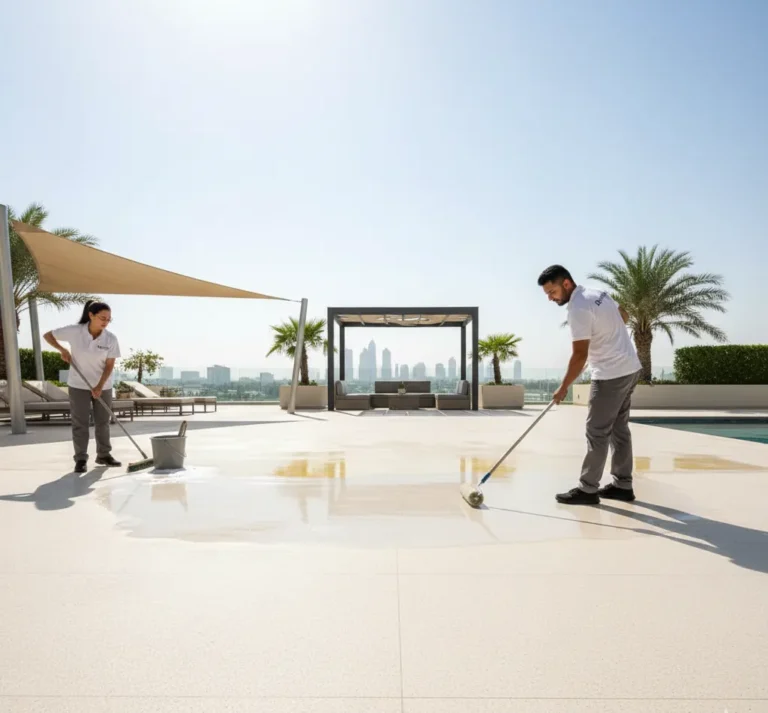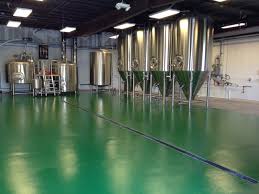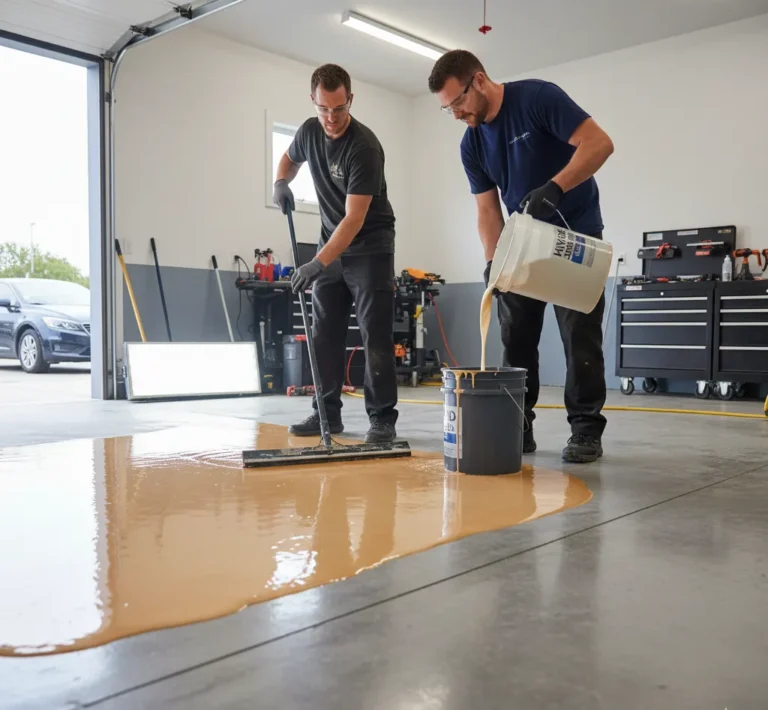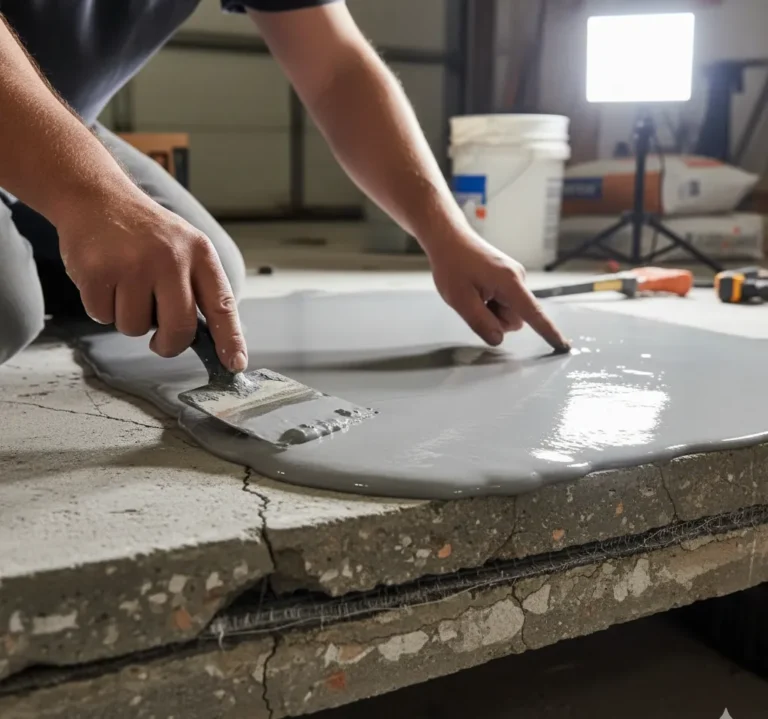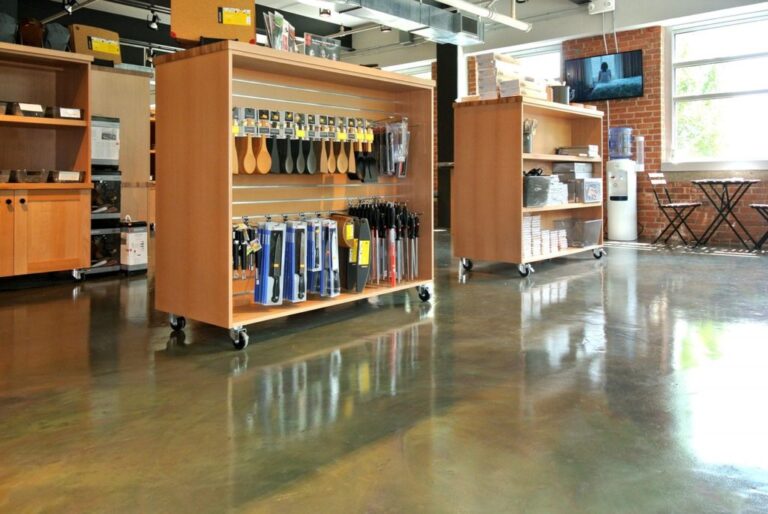What is concrete flooring?
Concrete flooring is a durable and versatile flooring option that has gained popularity in Dubai’s residential and commercial spaces. It consists of a mixture of cement, water, and aggregates that is poured, leveled, and finished to create a solid surface. This type of flooring offers a unique blend of functionality and aesthetics, making it an attractive choice for many property owners in Dubai.
Concrete floors can be customized to suit various design preferences, from sleek and modern to rustic and industrial. The versatility of concrete allows for a wide range of finishes, colors, and textures, making it adaptable to different architectural styles prevalent in Dubai.
- Key components of concrete flooring:
- Cement
- Water
- Aggregates (sand, gravel, or crushed stone)
- Reinforcement materials (optional)
Types of concrete flooring in Dubai
Dubai’s construction industry offers several types of concrete flooring options to cater to diverse needs and preferences. Each type has its unique characteristics and benefits, allowing property owners to choose the most suitable option for their space.
- Polished concrete: This type of flooring involves grinding the concrete surface to achieve a smooth, glossy finish. It’s popular in both residential and commercial settings in Dubai due to its sleek appearance and low maintenance requirements.
- Stamped concrete: Stamped concrete mimics the look of other materials like stone, brick, or tile. It’s an excellent choice for outdoor areas in Dubai, such as patios and pool decks, as it combines the durability of concrete with aesthetic appeal.
- Stained concrete: This option involves applying chemical stains or water-based acrylics to create unique color effects on the concrete surface. It’s favored in Dubai for its ability to add warmth and character to interior spaces.
- Epoxy-coated concrete: Epoxy coatings provide a durable, glossy finish that’s resistant to chemicals and stains. This type is commonly used in Dubai’s industrial settings, garages, and high-traffic commercial areas.
- Exposed aggregate concrete: This finish reveals the natural beauty of the aggregates used in the concrete mix. It’s often chosen for outdoor applications in Dubai, such as driveways and walkways, due to its slip-resistant properties.
| Type of Concrete Flooring | Best Suited For | Maintenance Level |
| Polished Concrete | Indoor spaces | Low |
| Stamped Concrete | Outdoor areas | Medium |
| Stained Concrete | Interior design | Low to Medium |
| Epoxy-Coated Concrete | Industrial use | Low |
| Exposed Aggregate | Outdoor surfaces | Medium |
Advantages of Concrete Flooring in Dubai
Durability and longevity
Concrete flooring is renowned for its exceptional durability and longevity, making it an ideal choice for Dubai’s climate and lifestyle. The robust nature of concrete allows it to withstand heavy foot traffic, furniture movement, and even vehicular loads in commercial settings. This durability translates to a longer lifespan compared to many other flooring options, potentially lasting for decades with proper care and maintenance.
In Dubai’s hot and sometimes humid climate, concrete floors demonstrate remarkable resilience. They resist warping, rotting, or degradation due to moisture, unlike wood or carpet. This durability ensures that concrete floors maintain their integrity and appearance for years, even in high-traffic areas or spaces exposed to challenging environmental conditions.
- Benefits of concrete flooring durability in Dubai:
- Resistance to wear and tear
- Ability to withstand heavy loads
- Resilience against moisture and humidity
- Long-term cost-effectiveness due to extended lifespan
Low maintenance requirements
One of the most significant advantages of concrete flooring in Dubai is its low maintenance requirements. Unlike many other flooring options that demand regular upkeep, concrete floors are relatively easy to maintain, saving both time and money in the long run.
The smooth, sealed surface of concrete floors makes them resistant to dust, dirt, and stains. Regular sweeping and occasional mopping are usually sufficient to keep the floors clean and hygienic. This ease of maintenance is particularly beneficial in Dubai’s sandy environment, where dust can be a constant challenge for homeowners and businesses alike.
Moreover, concrete floors don’t harbor allergens, mold, or mildew, contributing to better indoor air quality. This feature is especially valuable in Dubai’s climate, where humidity can sometimes be a concern.
- Low maintenance aspects of concrete flooring:
- Easy cleaning with simple sweeping and mopping
- Resistance to stains and spills
- No need for waxing or polishing in most cases
- Hypoallergenic properties
Versatility in design options
Concrete flooring offers unparalleled versatility in design options, making it a favorite among architects and interior designers in Dubai. The adaptability of concrete allows for a wide range of aesthetic possibilities, from sleek and modern to rustic and industrial.
Color options for concrete floors are virtually limitless. Integral color can be added to the concrete mix, or surface colors can be applied through stains, dyes, or tinted sealers. This flexibility allows property owners in Dubai to match their floors to any color scheme or design concept.
Texture and pattern options further expand the design possibilities. Concrete can be stamped, etched, or engraved to create unique patterns or mimic the look of other materials like stone, tile, or wood. Polishing techniques can also be used to achieve different levels of sheen, from matte to high-gloss finishes.
- Design versatility of concrete flooring:
- Wide range of color options
- Various texture and pattern possibilities
- Ability to mimic other materials
- Customizable finishes (matte to high-gloss)
Cost-effectiveness
Concrete flooring proves to be a cost-effective solution for many property owners in Dubai, especially when considering its long-term value. While the initial installation cost may be comparable to or slightly higher than some other flooring options, the durability and low maintenance requirements of concrete floors result in significant savings over time.
The longevity of concrete floors means fewer replacements or major repairs are needed compared to other flooring types. This durability translates to lower lifecycle costs, making concrete an economical choice for both residential and commercial properties in Dubai.
Additionally, concrete floors can contribute to energy efficiency in buildings. Their thermal mass properties help regulate indoor temperatures, potentially reducing heating and cooling costs – a significant advantage in Dubai’s hot climate.
- Cost-effective aspects of concrete flooring:
- Lower long-term maintenance costs
- Reduced need for replacements or major repairs
- Potential energy savings due to thermal mass properties
- Increased property value due to durability and aesthetics
Disadvantages of Concrete Flooring Dubai
Potential for cracking
While concrete flooring is known for its durability, it’s not entirely immune to cracking. This potential drawback is particularly relevant in Dubai’s climate, where temperature fluctuations and ground movement can contribute to the formation of cracks over time.
Cracks in concrete floors can occur due to various factors, including improper installation, inadequate curing, excessive moisture, or structural settling. In Dubai’s construction landscape, where rapid development sometimes leads to accelerated building processes, ensuring proper installation and curing time is crucial to minimize the risk of cracking.
It’s important to note that not all cracks are structural concerns. Hairline cracks are often normal and don’t affect the floor’s integrity. However, larger cracks may require professional attention and repair.
- Factors contributing to concrete floor cracking in Dubai:
- Rapid temperature changes
- Ground movement or settling
- Improper installation or curing
- Excessive moisture exposure
Hardness and comfort concerns
The inherent hardness of concrete flooring can be a disadvantage, especially in residential settings in Dubai. While this hardness contributes to the floor’s durability, it can also lead to discomfort for people standing or walking on it for extended periods.
In homes, the hardness of concrete floors may be less forgiving on joints and feet compared to softer flooring options like carpet or cork. This can be a particular concern for families with young children or elderly members.
To address this issue, many homeowners in Dubai opt to use area rugs or anti-fatigue mats in high-traffic areas or spaces where people spend a lot of time standing, such as kitchens. Some also choose to install radiant heating systems within the concrete to provide warmth underfoot during cooler months.
- Comfort considerations for concrete flooring:
- Potential for increased fatigue when standing for long periods
- Less cushioning for falls compared to softer flooring options
- Need for additional elements (rugs, mats) to enhance comfort
- Possibility of incorporating radiant heating for improved comfort
Temperature sensitivity
Concrete flooring can be sensitive to temperature changes, which is an important consideration in Dubai’s climate. During the hot summer months, concrete floors can absorb and retain heat, potentially making indoor spaces feel warmer. Conversely, they can feel cold underfoot during the cooler winter months.
This temperature sensitivity can affect the overall comfort of a space and may impact energy costs for heating and cooling. However, the thermal mass of concrete can also be advantageous when properly managed, helping to stabilize indoor temperatures over time.
To mitigate temperature-related discomfort, many property owners in Dubai incorporate insulation techniques or climate control systems. Some opt for surface treatments or coatings that can help regulate the floor’s temperature or improve its thermal properties.
- Temperature-related aspects of concrete flooring in Dubai:
- Potential for heat absorption during summer months
- Possibility of cold surfaces during winter
- Impact on indoor comfort and energy costs
- Options for temperature regulation through insulation or surface treatments
Concrete Flooring vs Other Flooring Options in Dubai
Concrete vs hardwood
When comparing concrete flooring to hardwood in Dubai’s context, several factors come into play. Concrete offers superior durability and moisture resistance, making it well-suited to Dubai’s climate. It withstands heavy foot traffic and is less prone to damage from sand and dust, which are common in the region.
Hardwood, while offering a warm and natural aesthetic, can be challenging to maintain in Dubai’s environment. It’s more susceptible to humidity changes and may require frequent refinishing. However, hardwood provides a softer, more comfortable surface underfoot compared to concrete.
In terms of cost, concrete is often more economical in the long run due to its longevity and low maintenance requirements. Hardwood, while potentially adding more resale value to a property, typically incurs higher maintenance costs over time.
| Factor | Concrete | Hardwood |
| Durability | High | Medium |
| Moisture Resistance | Excellent | Poor to Fair |
| Maintenance | Low | High |
| Comfort | Low to Medium | High |
| Cost (Long-term) | Lower | Higher |
Concrete vs tile
Tile flooring is another popular option in Dubai, often competing with concrete in both residential and commercial spaces. Both materials offer excellent durability and are well-suited to Dubai’s climate, but they have distinct characteristics.
Concrete provides a seamless look and can be customized with various colors and patterns. It offers better impact resistance compared to tile, which can crack or chip if heavy objects are dropped. However, tile generally provides more texture and can be less slippery when wet, an important consideration for bathrooms and outdoor areas in Dubai.
In terms of installation, concrete typically requires a longer curing time, while tile can be used almost immediately after installation. Both options are relatively low-maintenance, although tile grout may require periodic cleaning and sealing.
- Comparison points between concrete and tile flooring:
- Aesthetic versatility
- Slip resistance
- Installation process
- Maintenance requirements
- Cost considerations
Concrete vs epoxy
Epoxy flooring is often considered an alternative or complement to concrete flooring in Dubai, particularly in industrial or commercial settings. Epoxy is a resin applied over concrete substrates, providing a smooth, durable, and chemical-resistant surface.
Concrete flooring offers more design flexibility and can be polished to achieve a high-gloss finish similar to epoxy. It’s also more breathable, which can be advantageous in managing moisture issues. Epoxy, on the other hand, provides superior chemical resistance and is easier to clean, making it ideal for laboratories, warehouses, or automotive facilities.
In terms of longevity, well-maintained concrete floors can last for decades, while epoxy coatings typically need to be reapplied every 5-10 years, depending on use and exposure. The cost of epoxy can vary widely based on the quality and thickness of the application, while concrete costs are generally more predictable.
- Key differences between concrete and epoxy flooring:
- Chemical resistance
- Design flexibility
- Breathability
- Longevity
- Application process
Metallic Concrete Floor Ideas for Dubai Homes
Metallic epoxy coatings
Metallic epoxy coatings have gained popularity in Dubai homes for their unique, eye-catching appearance. These coatings combine epoxy resin with metallic pigments to create a dynamic, three-dimensional effect that resembles flowing water or molten metal.
The application process involves pouring the metallic epoxy mixture over a prepared concrete surface and manipulating it to create swirls, ripples, or other patterns. The result is a glossy, seamless floor with depth and movement, adding a touch of luxury to Dubai interiors.
Metallic epoxy floors are not only visually striking but also durable and easy to maintain. They resist stains, chemicals, and abrasions, making them suitable for both residential and commercial spaces in Dubai.
- Benefits of metallic epoxy coatings:
- Unique, customizable appearance
- High durability and chemical resistance
- Seamless, easy-to-clean surface
- Suitable for various interior styles
Metallic stains and dyes
For those seeking a more subtle metallic effect on their concrete floors, metallic stains and dyes offer an excellent alternative. These products can be applied to existing concrete surfaces to create a range of metallic finishes, from soft, pearlescent sheens to bold, vibrant hues.
Metallic stains penetrate the concrete surface, reacting chemically to produce permanent color. Dyes, on the other hand, are non-reactive and provide more consistent color coverage. Both options allow for creative blending and layering techniques to achieve unique effects.
In Dubai’s luxury home market, metallic stains and dyes can be used to create sophisticated, high-end looks that complement modern or traditional interiors. They offer a more understated metallic finish compared to epoxy coatings while still providing the durability and low maintenance benefits of concrete flooring.
- Advantages of metallic stains and dyes:
- Can be applied to existing concrete surfaces
- Offer a range of metallic effects and colors
- Allow for creative application techniques
- Provide a more subtle metallic finish
Polished concrete with metallic aggregates
Polished concrete floors with metallic aggregates offer a unique way to incorporate a metallic element into concrete flooring. This technique involves adding metallic flakes or chips to the concrete mix before pouring, then grinding and polishing the surface to reveal the embedded metallic elements.
The result is a smooth, reflective surface with sparkling metallic accents dispersed throughout. This option is particularly popular in Dubai’s high-end residential and commercial spaces, as it combines the durability of polished concrete with the luxurious appeal of metallic finishes.
Polished concrete with metallic aggregates can be customized by varying the size, color, and density of the metallic elements. This allows for a wide range of looks, from subtle shimmer to bold, glittering surfaces that make a strong visual statement.
- Features of polished concrete with metallic aggregates:
- Durable, low-maintenance surface
- Customizable metallic effects
- Seamless integration of metallic elements
- Suitable for both residential and commercial spaces
Installation Process of Concrete Flooring in Dubai
Site preparation
Proper site preparation is crucial for the successful installation of concrete flooring in Dubai. This phase involves several important steps to ensure a stable and durable foundation for the concrete.
First, the existing flooring or substrate must be removed, and the area thoroughly cleaned. Any debris, dust, or loose materials are cleared away. The subgrade is then evaluated for stability and compacted if necessary. In Dubai’s sandy soil conditions, additional stabilization measures may be required.
Moisture barriers are often installed to prevent water vapor from rising through the concrete, which is particularly important in Dubai’s humid climate. Proper drainage systems are also put in place to manage water runoff and prevent potential flooding issues.
- Key steps in site preparation:
- Removal of existing flooring
- Cleaning and leveling of the subgrade
- Soil stabilization (if needed)
- Installation of moisture barriers
- Setting up drainage systems
Pouring and leveling
The pouring and leveling process is a critical stage in concrete flooring installation. In Dubai, where temperatures can be extreme, special considerations are often made regarding the timing of the pour and the concrete mix design to ensure proper curing.
The concrete is typically delivered by mixer trucks and poured directly onto the prepared site. Workers use tools like screeds and bull floats to spread and level the concrete, ensuring an even surface. For larger areas, power trowels may be used to achieve a smooth finish.
During this phase, any decorative elements like color hardeners or stamping patterns are applied. Control joints are also cut into the concrete to manage cracking as the slab cures and settles.
- Important aspects of pouring and leveling:
- Timing the pour to avoid extreme heat
- Using appropriate concrete mix designs
- Proper spreading and leveling techniques
- Incorporation of decorative elements
- Cutting control joints
Curing and finishing
The curing process is vital for developing the strength and durability of concrete flooring. In Dubai’s hot climate, special attention is given to maintaining proper moisture levels and temperature during curing to prevent rapid drying, which can lead to cracking.
Curing compounds or wet curing methods are often employed to slow down the evaporation of water from the concrete. This process typically takes several days to a week, depending on the specific concrete mix and environmental conditions.
Once cured, the finishing process begins. This may involve grinding, polishing, or applying sealers or coatings. The choice of finish depends on the desired aesthetic and functional properties of the floor. In Dubai, where dust and sand can be concerns, sealers are often applied to enhance the floor’s resistance to staining and abrasion.
- Key considerations in curing and finishing:
- Managing moisture and temperature during curing
- Choosing appropriate curing methods
- Selecting finishing techniques based on desired outcomes
- Applying sealers or coatings for protection
Maintenance Tips for Concrete Floors in Dubai
Regular cleaning methods
Maintaining concrete floors in Dubai requires consistent care to preserve their appearance and durability. Regular cleaning is essential to remove dust, sand, and other debris that can accumulate quickly in Dubai’s environment.
For daily maintenance, dry mopping or sweeping is usually sufficient to remove loose dirt and sand. Weekly cleaning should involve damp mopping with a pH-neutral cleaner to avoid damaging the concrete’s surface or sealer. Avoid using harsh chemicals or acidic cleaners, as these can etch or discolor the concrete.
In high-traffic areas or commercial spaces, more frequent cleaning may be necessary. Using walk-off mats at entrances can significantly reduce the amount of dirt and sand tracked onto the floor, helping to maintain its appearance and reduce wear.
- Recommended cleaning routine:
- Daily: Dry mop or sweep
- Weekly: Damp mop with pH-neutral cleaner
- As needed: Spot clean spills immediately
- Periodically: Deep clean using appropriate methods for the specific finish
Sealing and resealing
Sealing is crucial for protecting concrete floors in Dubai from stains, moisture, and wear. The frequency of resealing depends on the type of sealer used and the amount of traffic the floor receives.
For residential spaces, resealing every 2-3 years is often sufficient. However, high-traffic commercial areas may require more frequent resealing, possibly annually. Before resealing, the floor should be thoroughly cleaned and any existing damage addressed.
When choosing a sealer, consider factors like UV resistance (important for areas exposed to sunlight) and slip resistance (crucial for outdoor areas or spaces prone to moisture). Some sealers can enhance the color of stained or dyed concrete, while others offer a more natural look.
- Sealing considerations for Dubai concrete floors:
- Choose sealers with UV and moisture resistance
- Consider slip-resistant options for safety
- Assess traffic levels to determine resealing frequency
- Ensure proper cleaning and preparation before resealing
Addressing cracks and damages
Despite their durability, concrete floors in Dubai may develop cracks or damages over time due to settling, temperature fluctuations, or heavy impacts. Addressing these issues promptly is essential to prevent further deterioration.
Small hairline cracks are often cosmetic and can be filled with a concrete crack filler or epoxy. Larger cracks or damages may require more extensive repair, possibly involving cutting out the damaged area and patching with new concrete.
For polished concrete floors, professional refinishing may be necessary to blend repaired areas seamlessly with the surrounding floor. In cases of severe damage or extensive cracking, consulting with a concrete specialist is advisable to determine the best course of action.
- Steps for addressing concrete floor damage:
- Regularly inspect floors for signs of damage
- Clean and prepare the damaged area before repair
- Use appropriate fillers or patching compounds
- Consider professional help for significant damages
- Refinish repaired areas to match the existing floor
Cost Considerations for Concrete Flooring Pros Cons Dubai
Initial installation costs
The initial cost of installing concrete flooring in Dubai can vary widely depending on several factors. Basic concrete slab installation is generally more affordable compared to high-end finishes like polished or decorative concrete.
In Dubai, the cost per square meter for basic concrete flooring can range from AED 100 to AED 300. However, more elaborate designs, such as stamped or stained concrete, can increase the price to AED 400-800 per square meter or more.
Factors influencing the initial cost include:
- Subfloor preparation requirements
- Concrete mix design and thickness
- Finishing techniques (polishing, staining, stamping)
- Addition of decorative elements or special aggregates
- Labor costs, which can vary based on project complexity
It’s important to obtain quotes from multiple reputable contractors in Dubai to get an accurate estimate for your specific project.
Long-term maintenance expenses
While the initial installation cost of concrete flooring can be significant, the long-term maintenance expenses are generally lower compared to many other flooring options. This makes concrete an economical choice over the life of the floor.
Regular maintenance costs for concrete floors in Dubai are relatively low, primarily involving routine cleaning supplies and occasional resealing. The frequency of resealing, typically every 2-5 years depending on traffic and exposure, represents the most significant recurring expense.
Potential long-term expenses to consider:
- Cleaning supplies and equipment
- Periodic professional deep cleaning (if required)
- Resealing costs (materials and labor)
- Potential repairs for cracks or damages
When comparing long-term costs with other flooring options, concrete often proves more economical due to its durability and low maintenance requirements.
Return on investment
Concrete flooring can offer a good return on investment (ROI) for property owners in Dubai, particularly when considering its longevity and low maintenance needs.
In residential settings, well-maintained concrete floors can enhance property value, especially when featuring decorative finishes that align with current design trends. For commercial properties, the durability of concrete flooring translates to fewer disruptions for repairs or replacements, potentially leading to increased productivity and reduced downtime costs.
Factors contributing to concrete flooring’s ROI:
- Extended lifespan (50+ years with proper maintenance)
- Reduced need for replacements or major renovations
- Potential energy savings due to thermal mass properties
- Increased property value, especially with high-end finishes
- Lower lifecycle costs compared to many alternative flooring options
When evaluating the ROI, it’s important to consider both the immediate costs and the long-term benefits of choosing concrete flooring for your Dubai property.
Environmental Impact of Concrete Flooring in Dubai
Energy efficiency
Concrete flooring can contribute significantly to the energy efficiency of buildings in Dubai. The high thermal mass of concrete allows it to absorb and store heat during the day and release it slowly at night, helping to regulate indoor temperatures.
In Dubai’s hot climate, this property can lead to reduced cooling costs during peak daytime hours. When combined with proper insulation and strategic design, concrete floors can help create more energy-efficient buildings, aligning with Dubai’s sustainability goals.
Additionally, the reflective properties of polished concrete can enhance natural lighting, potentially reducing the need for artificial lighting during daylight hours.
- Energy efficiency benefits of concrete flooring:
- Temperature regulation through thermal mass
- Potential reduction in cooling costs
- Enhanced natural lighting with polished surfaces
- Compatibility with radiant heating/cooling systems
Sustainability factors
Concrete flooring aligns well with sustainability initiatives in Dubai. The longevity of concrete floors means fewer replacements over time, reducing the demand for new materials and the associated environmental impacts of production and disposal.
Many concrete mixes now incorporate recycled materials, such as fly ash or slag, reducing the carbon footprint of the flooring. Additionally, locally sourced aggregates can be used, minimizing transportation-related emissions.
At the end of its lifecycle, concrete can be recycled and used as aggregate in new concrete or as base material for roads, further supporting circular economy principles.
- Sustainability aspects of concrete flooring:
- Long lifespan reducing replacement frequency
- Potential use of recycled materials in concrete mix
- Local sourcing possibilities for reduced transportation emissions
- Recyclability at end-of-life
Indoor air quality
Concrete flooring can positively impact indoor air quality in Dubai’s buildings. Unlike carpets or certain types of wood flooring, concrete does not harbor dust mites, mold, or allergens, contributing to a healthier indoor environment.
The non-porous nature of sealed concrete floors makes them easy to clean, reducing the accumulation of dust and allergens. This is particularly beneficial in Dubai’s environment, where sand and dust can be persistent issues.
However, it’s important to note that during installation and certain finishing processes, proper ventilation is crucial to manage potential emissions from sealers or coatings. Once cured, concrete floors are generally inert and do not off-gas volatile organic compounds (VOCs).
- Indoor air quality considerations:
- Resistance to allergens and mold growth
- Easy cleaning reducing dust and allergen accumulation
- Importance of proper ventilation during installation and finishing
- Low VOC emissions after curing
FAQs
Is concrete flooring suitable for residential use in Dubai?
Concrete flooring is indeed suitable for residential use in Dubai. It offers durability, low maintenance, and versatility in design, making it an excellent choice for homes in the region. The material’s ability to withstand Dubai’s climate, including high temperatures and occasional humidity, adds to its appeal. Concrete floors can be customized with various finishes, colors, and textures to suit different interior styles, from modern minimalist to luxurious traditional designs. Additionally, their thermal mass properties can contribute to energy efficiency in residential buildings, potentially reducing cooling costs during Dubai’s hot summers.
How long does concrete flooring last in Dubai’s climate?
Concrete flooring in Dubai can last for several decades, often 50 years or more, with proper installation and maintenance. The durability of concrete makes it well-suited to withstand Dubai’s climate, including high temperatures and occasional sand storms. However, the longevity of the floor also depends on factors such as the quality of installation, the level of foot traffic, and how well it’s maintained over time. Regular cleaning, periodic resealing, and prompt addressing of any cracks or damages can significantly extend the life of concrete floors in Dubai’s environment.
Can concrete floors be heated in Dubai?
Yes, concrete floors can be heated in Dubai, although it’s less common due to the region’s predominantly hot climate. Radiant floor heating systems can be installed within concrete floors, providing a comfortable warmth during cooler months. This method of heating is energy-efficient and can distribute heat evenly throughout the space. In Dubai, where winter temperatures are mild, heated concrete floors might be more of a luxury feature in high-end residential properties or used in specific commercial applications. The excellent thermal conductivity of concrete makes it an ideal material for such heating systems when desired.
Are concrete floors slippery when wet in Dubai?
The slipperiness of concrete floors when wet in Dubai depends largely on the finish applied to the surface. Polished concrete can be slippery when wet, which is an important consideration given Dubai’s occasional humidity and the prevalence of pool areas. However, there are several ways to address this issue:
- Anti-slip additives can be incorporated into sealers or coatings.
- Textured finishes or stamped patterns can provide better traction.
- For outdoor areas, exposed aggregate finishes offer natural slip resistance.
It’s crucial to consider the intended use of the space and choose an appropriate finish that balances aesthetics with safety, especially in areas prone to moisture.
How do I choose the right concrete flooring finish for my Dubai home?
Choosing the right concrete flooring finish for your Dubai home involves considering several factors:
- Assess your aesthetic preferences and the overall style of your home.
- Consider the room’s function – high-gloss finishes might work well in living areas but may not be suitable for bathrooms.
- Think about maintenance requirements – some finishes require more upkeep than others.
- Factor in Dubai’s climate – choose finishes that can withstand heat and occasional humidity.
- Consider slip resistance, especially for outdoor areas or spaces near pools.
Consult with local concrete flooring specialists who understand Dubai’s specific environmental conditions and can recommend finishes that balance durability, aesthetics, and practicality for your home.
